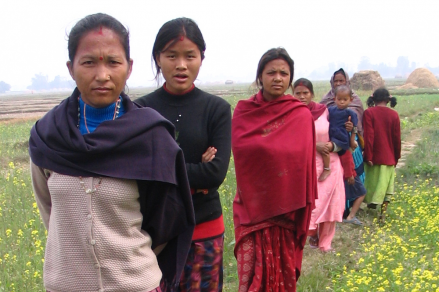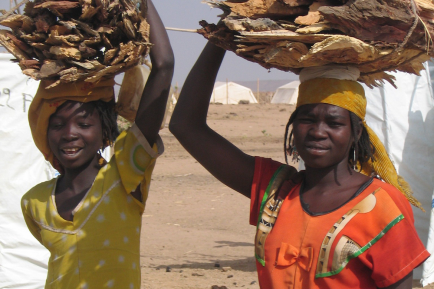

Since the Trump administration returned to power in 2025, sweeping immigration policy shifts and devastating funding cuts have triggered a global and national crisis.
In the United States, parents are increasingly being detained and deported without the opportunity to reunite with their children or make caregiving arrangements for them. Pregnant, postpartum, and nursing mothers are being detained in untold numbers, despite the US government’s own policies prohibiting the practice except in limited circumstances.
Thousands of migrants and asylum seekers are navigating a return to their home countries or to other countries with which they have no ties and where they remain in limbo, unable to return home. Meanwhile, massive cuts to US foreign assistance have reduced critical funding for women’s organizations, health services, and gender-based violence support programs for migrants and other displaced people, leaving women and girls at heightened risk for violence and exploitation.
Read more
The crisis in Gaza has reached catastrophic levels. More than 60,000 people in Gaza have been killed since Israeli attacks on Gaza began after October 7, 2023—nearly half of whom are women and girls. Israel’s destruction of schools, hospitals, homes, farms, bakeries, and water and sanitation facilities has resulted in the loss of 70% of Gaza’s infrastructure. 1.9 million people—or 90 percent of the population of Gaza—have been displaced by the war.
The people of Gaza cannot wait another moment—the international community must act now.
Read more


Advancing gender equality and promoting resilience across humanitarian response can transform the lives of refugee women, children, and youth.
LEARN MOREThe Women's Refugee Commission advocates for gender equality across humanitarian response to ensure equal access and opportunity for all, increase dignity and well-being, and promote long-term self-reliance.


We advocate for approaches in humanitarian response that build the resilience of refugee women, children, and youth by strengthening and investing in their assets, skills, and capacities.
Our system of internal accountability at WRC measures our successes and challenges in achieving our strategic priorities of gender equality and resilience-based approaches.
